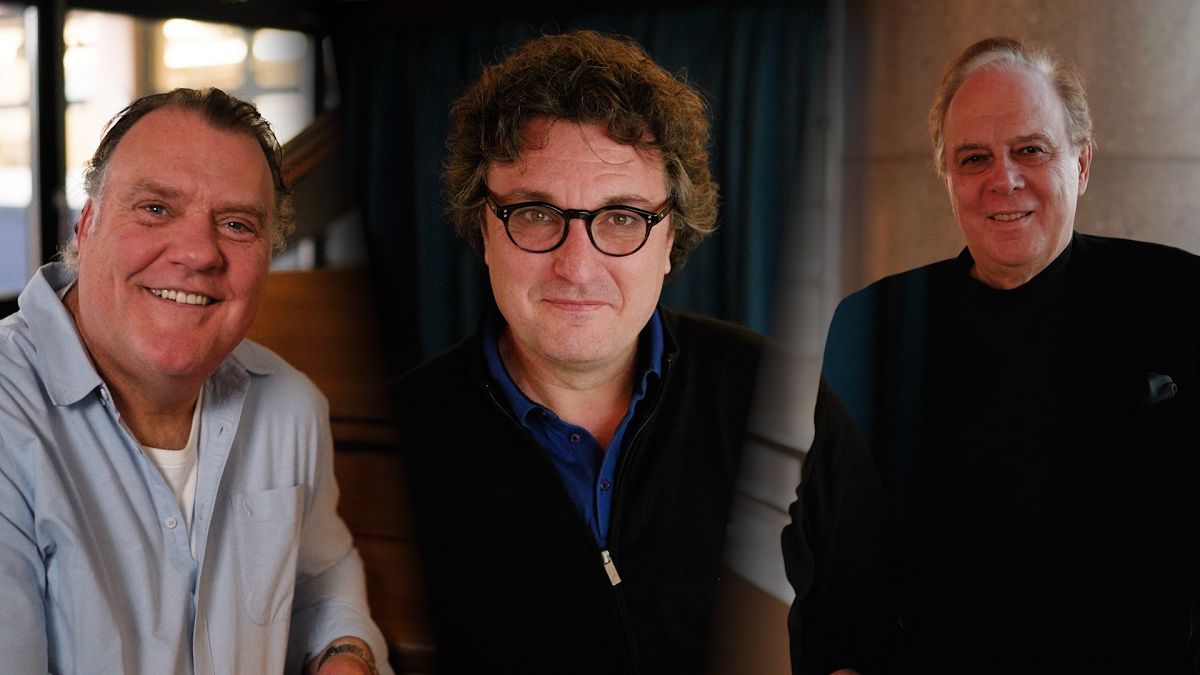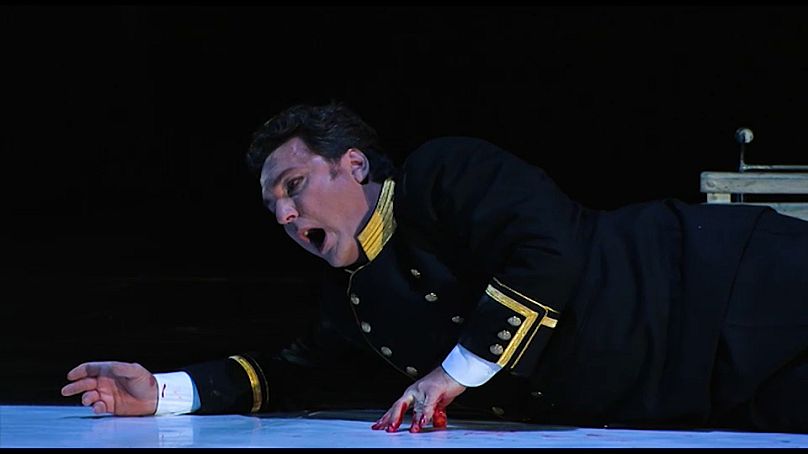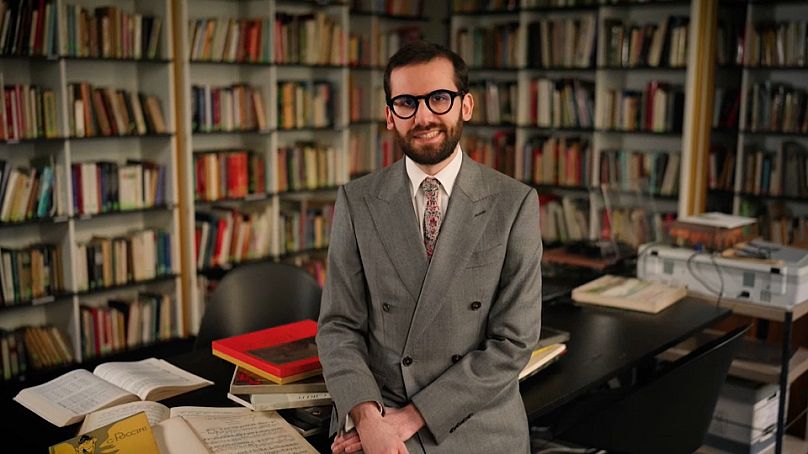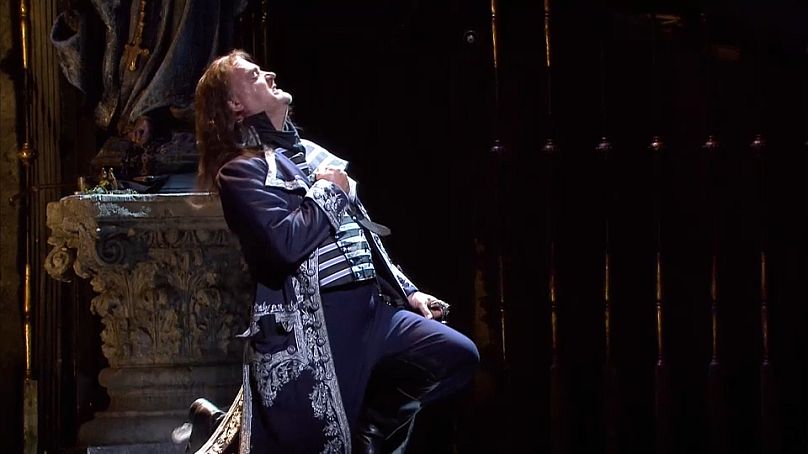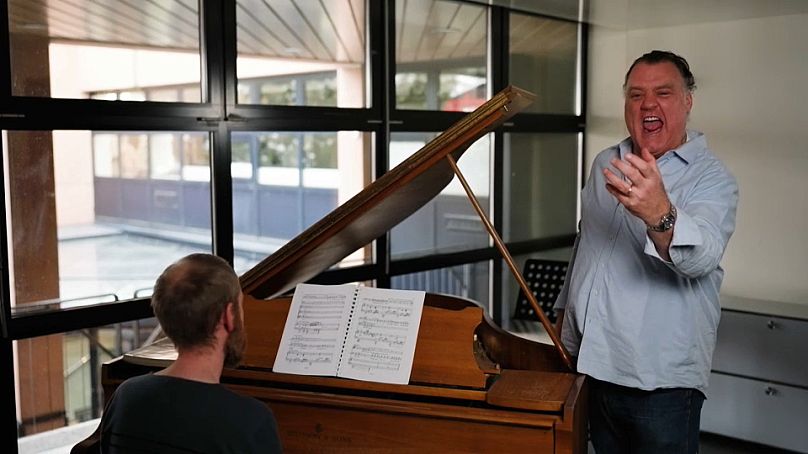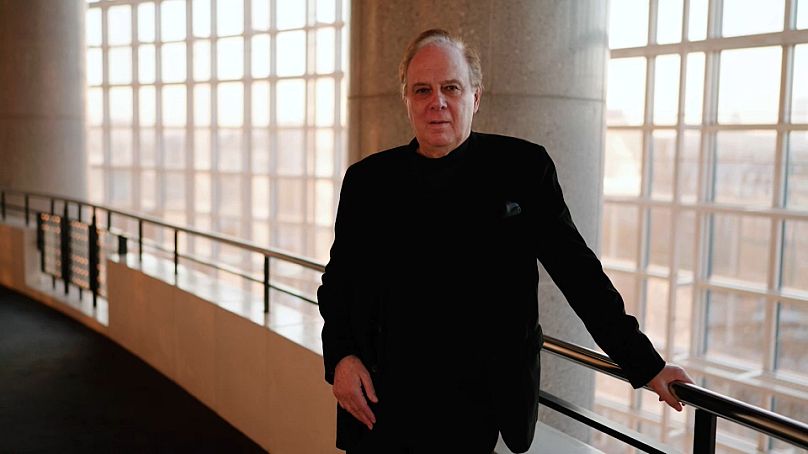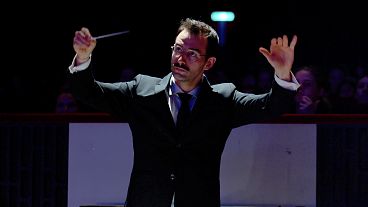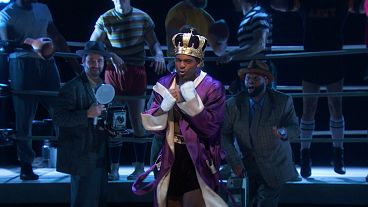They are the villains, the kings, the fathers, and they are the lowest male voices in opera. Musica speaks to Ferruccio Furlanetto, Bryn Terfel and Ludovic Tézier about what it takes to embody the most complex characters.
The baritone, bass-baritone and bass are the lowest male voices in opera. These so-called 'darker voices' portray theatrical and complex characters such as Gods, devils, kings, servants, high priests and much more.
Euronews' Musica spoke to three legends of opera: Bryn Terfel, Ludovic Tézier and Ferruccio Furlanetto to explore the world of the darker voices and reveal what it takes to embody the most complex characters.
Baritone: From 'drama to tragedy'
The baritone is the most common type of male voice. But it's far from ordinary.
Warm and versatile, the baritone voice was traditionally reserved for villains, love rivals or fathers. The part of the hero who got the woman at the end was already taken by the tenors.
"I'm delighted to be a baritone," Ludovic Tézier, one of the world's leading baritones, told Musica. "The baritone’s role is to transform drama into tragedy. We need this middle-range voice as it embodies tormented characters."
Theatrical and powerful, composers use the baritone voice range because it brings a dramatic dimension.
“The baritone is a character, who in romantic opera, is generally the one who brings evil, catastrophe or tragedy. Even if it doesn’t happen through him, it's he who pushes for it and it ends very, very badly,” Tézier explained.
“Generally these are quite dark characters, very tortured and they are really interesting to play and to create on stage,” he added.
Italian composer Giuseppe Verdi was an admirer of the baritone voice as it allowed him to create unforgettable characters.
"When it comes to baritones, the composers looked for a kind of kinship with the tenor, sometimes as an evil double," said Jules Cavalié, editor-in-chief at L’Avant-Scène Opéra. "In baritone roles, we can find the theatrical qualities of heroism and of valour. They are proud characters who want to defend their honour, who often want to confront the tenor."
When interpreting these complex characters, every single word is important, explained Ludovic Tézier during a masterclass at the Paris Opera Academy.
“I really emphasise the text, the diction and the meaning of the words, because that's the baritone's job. When you're a great soprano or a great tenor, sometimes you have to cheat a little on a few vowels in order to reach that dizzying range. The baritone has other resources and other qualities. Not everyone can present the text in a very clear way,” Tézier said.
The power behind bass-baritone
A level lower than baritone is bass-baritone. It’s an imposing voice that straddles both baritone and bass, while sometimes extending lower than the other baritones.
“Well, of course, the bass-baritone voice has quite a range. If you’re lucky,” said Welsh bass-baritone opera and concert singer Bryn Terfel.
There is also a specific physical attribute that gives the bass-baritone this impressive range.
Singing teacher at London's Royal Opera House Gary Coward told Musica: “Bass baritones are often quite big people with big frames, powerful shoulders, strong core strength, often a big head and a thick neck, and that betokens very often large vocal cords which give tremendous power, but also because of their length, can give extremes in range.“
In Puccini’s epic “Tosca”, the villain Scarpia - a powerful and evil chief of police – has a desperate desire for Tosca.
“A bass-baritone is a baritone that comes across as very dark and he is often given the role of the villain. Scarpia is the archetypal bass-baritone," said Jules Cavalié. "He has this darkness. He's lecherous. He's the character that embodies evil."
Scarpia is one of the signature roles of Bryn Terfel. "There are certain roles that you look forward to when it arrives in your diary. When Tosca is in my diary, I get so excited. When you're introduced to this piece you carried on this wave of incredible emotions," he said.
"This is one of the most dangerous parts vocally. You have to have a presence. I might not look like I'm the one that runs ten miles every day, but I swim a lot, which is great for your capacity and for knowing that your mind will tell you: I can sing that very long phrase in one breath," Terfel added.
Bass: Descending into the basement
The bass is the deepest vocal range of the human voice. And it’s rare.
Legendary Italian bass Ferruccio Furlanetto has been on stage for almost five decades shaping complex characters.
“The voice of a bass is privileged because all the major bass roles are not only vocal roles," said Furlanetto. "You need also to be an interpreter. You have kings, high priests, devils.”
"We tend to associate deep voices with maturity and these deep rumbling tones in the catacombs of sonority are very reassuring," said Gary Coward. "If you hear it live in an opera house it's as if the sound is enveloping you and caressing you."
"You really learn to live the characters under your own skin," Ferruccio Furlanetto admitted. "Therefore, if there is a moment where you're suffering, you must suffer. It must come from your heart. It must be honest."
"Lower voices give colour. They evoke velvet, a good Bordeaux wine, that’s very tannic,” said Jules Cavalié.
“The voices of tenors and virtuoso sopranos are stars that shine in the night sky. But they cannot shine if there is no dark deep blue sky behind them. The magic comes from the encounter between the two," he added.
